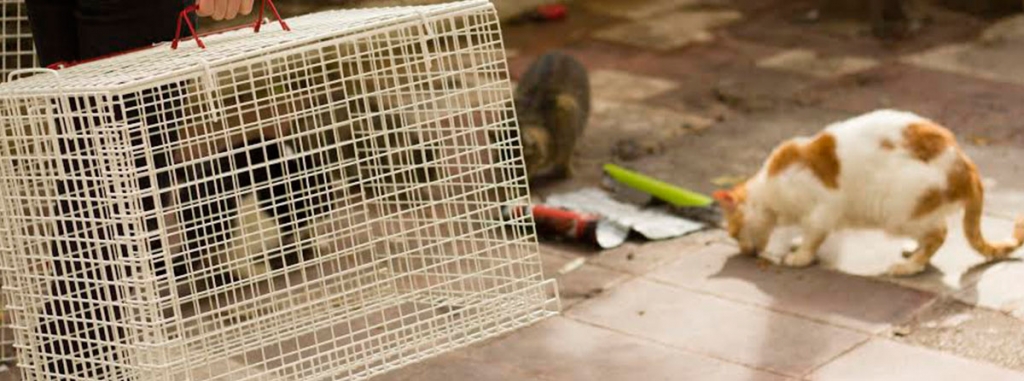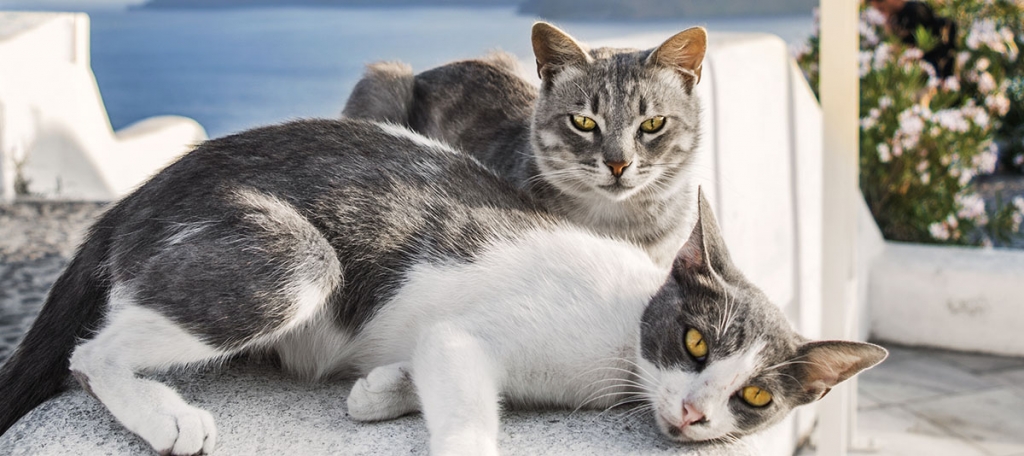Why Spay/Neuter
Spaying and neutering helps fight pet overpopulation
Every year, millions of cats and dogs are euthanized, killed on the roads, poisoned, or suffer and die of illness or injury on the streets. The only reason they receive this death sentence is because they are surplus to requirements. If you breed your pet, a stray animal loses the chance of a home. The huge numbers of unwanted and abandoned animals could be drastically reduced simply by spaying or neutering. Every single unneutered cat is capable of generating, together with all its progeny, up to 420,000 kittens within 7 years.
Your pet will live a longer, healthier life
Neutering/spaying cats prevents a wide range of potentially deadly diseases, ranging from cancer of the uterus, breast and testicles to Feline Immunodeficiency Virus (FIV) and other sexually transmitted diseases. Spaying your female cat before her first season and your male cat before six months of age offers the best protection from all of these diseases, and also eliminates the chances of being injured during mating season.
Your spayed female won’t come into season
Female cats usually come into season for four to five days every three weeks during breeding season. During this period, she will howl and urinate more regularly, in some cases all over the house. Tomcats from miles around will gather at your door to serenade your cat, spray potently around your doorstep, and fight loudly and viciously with each other. If your cat has a chance to go outside, she may well be raped by any and every male cat around.

Your male cat won’t spray around the house
Once you’ve smelled the distinctive stench of tomcat urine, you might well find yourself changing your mind pronto about leaving your male cat unneutered. It’s about as pungent and all-pervasive as skunk spray. That smell just doesn’t come out of fabrics. And your cat will be doing it everywhere he can, in a subconscious attempt to advertise his status as eligible bachelor.
Your cat is much less likely to get run over or wounded
Once a male cat gets wind of a female in season, he will do everything in his power to reach his goal, risking life and limb in traffic accidents and fights with other males. 90% of cats run over by cars are unneutered – in the heat of the chase after a female or a desperate battle with other tomcats, the last thing on a cat’s mind is checking for a gap in traffic, while an unspayed female being pursued down the streets by ardent males is equally likely to meet a tragic end under the wheels of a passing car.
Your sexual hang-ups are yours, not your pet’s!
People often seem to have difficulty emotionally coming to terms with neutering their pets – giving reasons with which psychologists would have a field day. Getting your cat neutered does not in some way alter your own sexuality. Your male cat doesn’t have macho hang-ups about his virility, nor does your cat associate sex with romance and love in the way that humans often do. They can’t wear condoms: every time nature dictates that they must mate, they are programmed to procreate.

Spaying or neutering will NOT make your pet fat
Not that old chestnut! Too much food and not enough exercise are what cause your pet to put on weight, not neutering. If you play active games with your cats and make sure that they have plenty of stimulation, and you monitor their food intake, they will remain fit and trim.
It’s cost-effective
The one-off spay/neuter surgery will probably cost you less than your family’s weekly groceries, or a restaurant meal for two. It will also cost you significantly less than the expenses of having and caring for a litter, and will be substantially cheaper than paying for all the necessary treatment each time your unneutered tomcat escapes and gets into battles with the neighbourhood strays, or your unneutered female gets hit by a car and needs emergency surgery.
Your pet doesn’t need to have a litter for your children to learn about the miracle of birth
Irresponsibly letting your pet produce offspring you have no intention of keeping is not a good lesson for your children – especially when so many unwanted animals end up in shelters or dead on the streets. There are countless books and videos available to teach your children about birth in a more responsible way.
Neutered stray cat colonies are smaller and more stable
Here in Greece, where the stray cat population is innumerable, every neighbourhood has more than its share of cats. Some people feed them, feeling responsible as the cats grow to expect their visits, while others object to them, making complaints or threats, or even poisoning the cats. In both cases, given that finding all of these cats happy homes off the streets is sadly unachievable as things stand, given the sheer numbers, the next best thing is to gradually reduce the population through neutering. A neutered colony of cats is far more healthy and stable – more cats do not tend to join the group, as they are not attracted during the mating season, and the food source is sufficient only for a certain number of cats, so it levels off. Studies by the World Health Organisation have shown that simply getting rid of all the stray animals in one area merely means that others come to fill the gap. Whereas if there is a small and stable population of healthy neutered animals, newcomers do not move in to fill the area.

